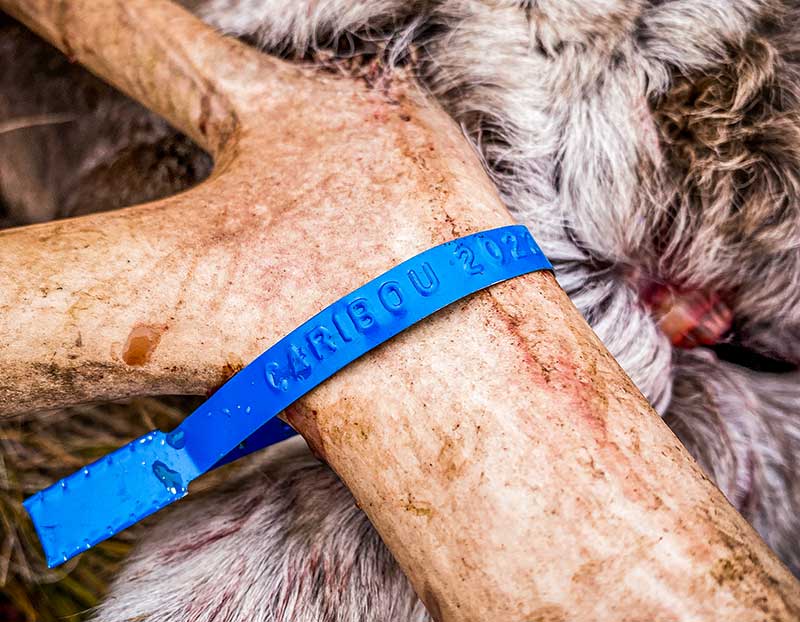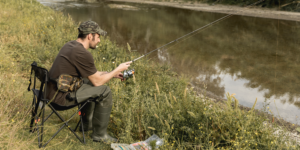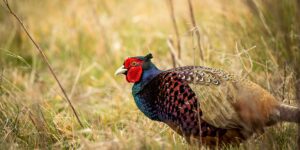If you’re new to hunting, understanding what licenses and tags you need to legally hunt can be confusing.
To legally hunt any species in the U.S., you will need not only a hunting license, but also a specific hunting tag and even a hunting stamp. Some tags for animals can be bought over the counter, while others may require a draw based on preference points. Sound confusing? Read on to break down all you need to know about hunting licenses, tags, and seasons.
Why limit yourself to public land when there are millions of acres of private land to explore.
Tags, Licenses, & Seasons
It’s important to understand the difference between a hunting license and a hunting tag—and the season restrictions with both. All hunters are required to have both a valid hunting license and a specific species tag if they are hunting big game animals.
What is a Hunting License?
A hunting license is issued by individual states—meaning you need a hunting license in each state that you plan to hunt. A hunting license does a few things: It allows you to hunt legally in a state, to buy species specific tags, and to apply for drawings or lotteries for big game tags.
A hunting license is also your proof that you have passed a hunter safety course, which is required to hunt in the U.S. Each state has different laws on what age you have to be before you can take a hunter safety education course.
Hunting licenses can be purchased to hunt only, or as a fish and hunt combination, and can even be purchased for a “lifetime.” Lifetime licenses allow you to pay a one time fee and you always have a hunting and fishing license year round.
What is a Hunting Tag?

A hunting tag is your legal document that states you are allowed to hunt a specific species. Unless you have a big game tag or in some cases, a small game tag, you cannot hunt.
Depending on where, whether you want to hunt with a bow or rifle, and what species you would like to hunt is dependent on how you can buy a tag. For some species you have to enter a lottery or buy preference points for many years before you have a chance to draw the specific tag you are wanting. A lottery tag is challenging to draw and may take many years before you do so. The longer you apply, the better your chances. Each year that you do not draw a tag, you build what are called bonus points, or sometimes referred to as preference points. You can also just purchase a preference point in certain states instead of applying for a tag. This allows you to build your points up for many years, giving yourself better odds when you decide to apply for a tag. For some other tags, a drawing or lottery is not required, but rather you can buy them over-the-counter (OTC) or at free will as long as tags are available.
Tags also come with an additional fee from your hunting license. The price depends on the tag and species, how unique it is, and whether you are a resident or non-resident hunter. Additionally, tags are drawn long before the season which means applying for a tag or purchasing one OTC needs to be planned and researched well in advance. Tags are allocated very specifically and distributed in limited numbers. How many tags given for each specific hunt unit and species are determined by wildlife officials who study animal herds and conservation.
What is a Hunting Stamp?
The U.S. heavily regulates the hunting of ducks and geese because the species suffered heavily in the 1930s—almost to the point of nonexistence. To help fund habitat conservation for waterfowl, hunters must purchase a Federal Duck Stamp before hunting migrating birds. The stamp was made specifically for conservation funding with 98 percent of the purchase from the stamp going directly to protect wetland habitat.
Hunters must be in possession of the stamp while hunting, and it must be signed in ink across the face of the stamp.
What is a HIP Number?
If you are hunting migratory birds, you must obtain what is called a Harvest Information Program (HIP) number in addition to your Federal Duck Stamp. This is completely free to hunters. Typically you can register easily online for your number, or call an automated system. Write your HIP number on your hunting license so you have it all season long.
Residents vs. Non Residents Hunting Licenses and Tags
Resident hunters pay less than non-resident hunters for hunting licenses and hunting tags. This is largely up for debate on why, as sometimes non-resident hunters can pay upwards of 10 times the amount a resident hunter pays. It is mostly argued that since non-resident hunters do not live in the state and pay taxes, the excess funds from charging a premium for non-resident hunters to hunt the states wildlife helps fund conservation and the maintaining of wildlife populations in the state.
States allot a certain number of tags for the hunting season. Resident hunters are given more state tag opportunities than non-residents.
Different Types of Tags
A hunting tag is specific to what species and gender of animal you can hunt, as well as what type of hunting tool you can use (rifle, bow, muzzleloader), and when and where you can hunt.
To hunt big game, your tag could be for an antlered animal (buck or bull) or antlerless (doe, cow elk, etc.). Your tag will be for a certain unit or area; and for a specific season with a date range of when you can legally hunt. Buck tags are a prefer
Tags are not limited to big game animals. To hunt certain small game animals, you must also have a hunting tag, including some upland birds, geese, ducks, and turkeys. Some small game animal tags you can buy over-the-counter, and others you must apply for.
The hassle free way to monetize your acreage.
How do Hunting Tags Work?
Hunting tags help state wildlife officials manage wildlife to sustain healthy populations. States allot a certain number of tags for certain species every year. Hunters cannot kill more than one antlered animal of the same species during the same season. For example, if a hunter draws a bull elk tag for the rifle season, he can only kill one bull elk. However, a hunter may have one tag for the bull elk, and another tag for mule deer buck. In that case, a hunter can kill both a bull and a buck.
It’s important to study up on hunting regulations in your state and other states you plan to hunt. If you have questions, Division of Wildlife representatives are there to help answer any of your questions to plan your dream hunt.
How to Get Tags, Permits, and Stamps
Obtaining a basic hunting license and Federal Duck Stamp can easily be done online through every state Division of Wildlife website, or from an authorized dealer such as a local sporting goods store or Wal-Mart.
For hunting tags, it takes many months of planning in advance. You must apply for tags and that timeframe varies state to state. Study your local Division of Wildlife website or a rules and regulation booklet for timeframes of when you must apply for the next season tags.



